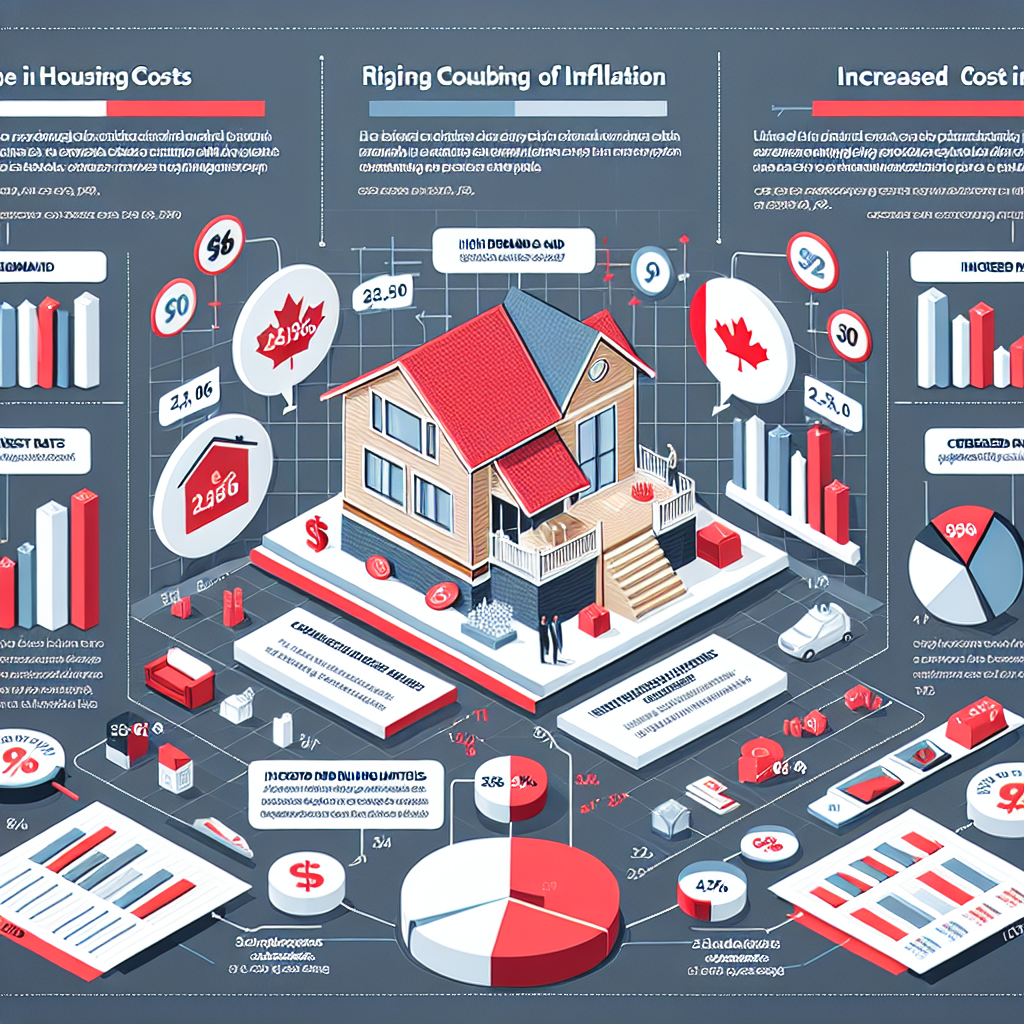Understanding Inflation and Housing Costs in Canada
The Canadian housing market has experienced unprecedented growth over the past few years, leading to growing concerns about inflation. Rising housing costs are increasingly reflected in consumer prices, making it crucial for residents to understand how these dynamics can impact their financial well-being. This article will explore the correlation between housing costs and inflation in Canada, what it means for consumers, and actionable steps to mitigate its effects.
Economic Context
The surge in housing prices has been driven by various factors, including low-interest rates, high demand, and limited supply. According to recent data from the Canadian Real Estate Association (CREA), average home prices have increased by over 20% in major markets since the beginning of the pandemic. In response, inflation rates across the country have also risen, prompting the Bank of Canada to reassess its monetary policy strategies.
As housing is a substantial component of the Consumer Price Index (CPI), fluctuations in this sector greatly influence overall inflation rates. An increase in housing costs can squeeze household budgets, forcing Canadians to allocate more funds to basic living expenses. This challenge is particularly acute for low and middle-income families, who may struggle to keep up with increasing rent or mortgage payments.
Key Insights from Market Trends
-
Core Inflation Effects: As housing costs rise, core inflation—excluding volatile elements—also sees an uptick. Financial analysts suggest that without addressing housing supply, inflationary pressures will persist. The Bank of Canada warned that prolonged housing inflation could necessitate more aggressive interest rate hikes.
-
Rent Increases: The rental market is not immune to these trends. Landlords have raised rents in many urban centers, reflecting the soaring demand for available rental units. Tenants are advised to be aware of their rights regarding rent increases, and to consider exploring alternatives such as co-living arrangements or leasing in less popular neighborhoods.
Recommendations for Consumers
To navigate the rising costs associated with inflation and housing, consider the following strategies:
-
Budget Reevaluation: Reassess your monthly budget to account for increased housing expenses. Identify areas where discretionary spending can be reduced, allowing for a buffer against unforeseen costs.
-
Alternative Housing Options: Investigate various housing arrangements—such as shared housing or renting in less popular neighborhoods—that could provide relief from high rent. Local housing initiatives may also offer subsidies or assistance programs that could ease financial strains.
-
Financial Literacy: Stay informed about housing market trends and inflationary effects through credible financial resources and publications. Consider engaging with community workshops or online seminars focused on financial literacy and budgeting.
Conclusion
Understanding the implications of inflation on housing costs is vital for Canadians looking to maintain financial stability. The ongoing fluctuations in housing expenses underscore the importance of making informed decisions. By actively engaging with these issues, individuals can better protect themselves against financial strain and contribute to discussions that advocate for sustainable housing policies.
For more information and resources on navigating inflation in the housing market, visit Bank of Canada and Canadian Real Estate Association.
